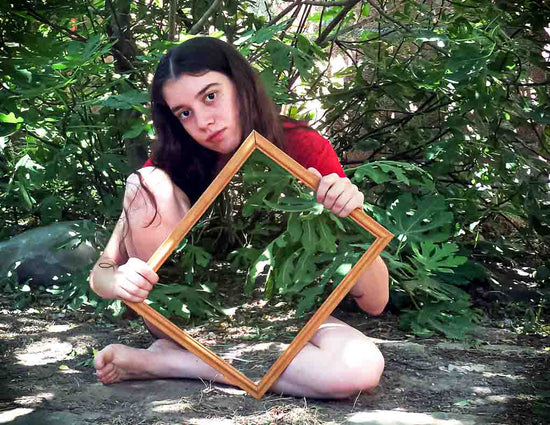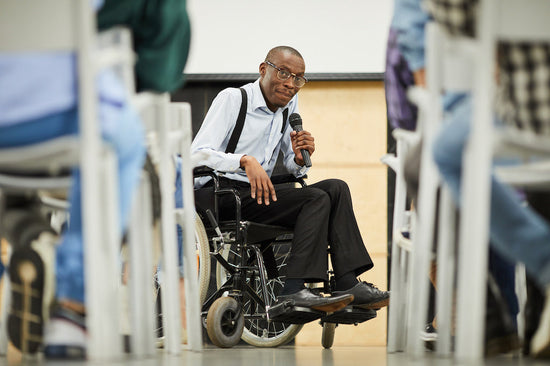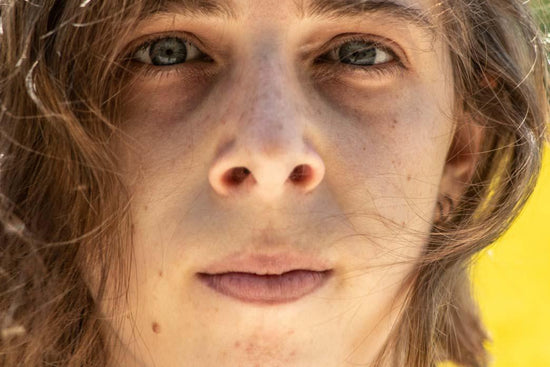
My disabled daughter isn’t your inspiration porn
“Please do not tell my daughter how inspiring she is because of all she does “against all odds.” That if she can work that hard to walk, then you have no excuse not to get off your lazy bum and get to the gym. She will hear pity, and she doesn't want your pity.” | Photo Credit ©Prazis Images / Adobe Stock
My disabled daughter isn’t your inspiration porn
Even though you may find my disabled daughter inspiring, heaping praise on her for merely existing is not your inspiration porn.
Disabled people don’t want to be the subject of your inspiration
What is it about a little girl with leg braces, a pink walker, and a determined but crooked gait that makes people want to just die of cuteness overload? As her parent, of course, I think she’s adorable and precious, too, but deep down I know she is just another second-grader doing her thing. The attention that she gets from able-bodied people for living her regular life is not inspiring and amazing, it’s unnecessary. My daughter is not your inspiration.
Let me tell you why. There is a cultural trend of able-bodied people congratulating themselves for remembering to include people with disabilities. You might call it a celebration of someone doing a good deed or a feel-good story. But many people in the disability community call it inspiration porn. They don’t want to be the subject of your inspiration, and I don’t want my kid to be that either.
People love to share memes or videos about disabled kids being allowed to go to prom or play on the basketball team, having a great time with their typical peers. I did it, too. Awww, look at how sweet that kid is, pushing her friend who is in a wheelchair. Or, I’m not crying, you’re crying! Look how that teacher or that dad or that doctor did some thoughtful thing for that special-needs kid! It may feel great, but it is ableist and self-congratulatory.
"Even though you may find my disabled daughter inspiring, heaping praise on her for merely existing is not your inspiration porn."
The posts that celebrate able-bodied people who go out of their way to be nice to disabled people reinforce the status quo, which is that people with disabilities are other or less than, and that it’s heroic to be inclusive or kind.
Yes, my daughter’s life is quite different from yours or mine. She has to work hard to persuade her body to do what comes easily to most of us and sometimes it cannot comply. She is always tired. But this is her life, and it’s the only one she has ever known. She loves it fiercely. She talks about what she wants to be when she grows up and how many babies she wants to have and who she might marry.
Her diagnosis with a rare and poorly understood neurological disorder reminds us that it’s possible none of those things will happen. But we follow her lead because she knows better than the rest of us. So if she says she’s going to be a teacher someday, I believe her.
People tell me that she is such a fighter. She’s a warrior. A champ. What a trooper. She’s my hero. But please, just stop. She’s 8 years old, and she’s disabled, and that is very, very hard. But her life is not a war. She cannot do battle with her disability, so the military analogy exasperates me.
Yes, there is survival. There is tenacity. She has to be brave. There is pain and fatigue. But more than that, there is acceptance. There is joy. Love. Happiness. Friendship. Mobility. Communication. There is music and dance and play. There is “Frozen.” Her friends and family work to make her surroundings accessible and her life inclusive, not because she has special needs but because they are just her needs.
My disabled daughter knows she isn’t exceptional for being disabled
So when you see my disabled daughter, please do not praise her for doing things you do every day. She uses a walker, but with it, she walks. She uses a wheelchair, and it keeps her mobile just like your legs do. She isn’t doing anything out of the ordinary. If you tell her she’s doing a great job she will look at you quizzically. Did I just get congratulated because my walker is pink? Because I pushed the button on my wheelchair and moved forward?
Please do not tell her how inspiring she is because of all she does “against all odds.” That if she can work that hard to walk then you have no excuse not to get off your lazy bum and get to the gym. What I hear is an ableist slut. What she will hear is pity. But she doesn’t want your pity; she knows she isn’t exceptional for being disabled. She will say thank you because we’ve taught her to. She will take your compliments because she’s polite. But on days when she gets congratulations for no real reason, she grows frustrated more easily because she expects a parade every time she swallows a pill or brushes her teeth by herself.
"My disabled daughter is not your inspiration."
And please do not bless her. The last time someone marveled at her and proclaimed, “God bless you, child,” she stopped dead in her tracks. She looked at the person and said, “But I didn’t sneeze!” She does not want or need your blessing to go about her day.
I know people mean well and are trying to be nice. But she doesn’t. She’s a kid, she’s friendly and cute, and she wants to talk, so you may feel the desire to connect, to normalize, to make conversation. Please understand that even though you may find her inspiring, heaping praise on her for merely existing says more about how able-bodied people view her than it does about how great she really is. It says that she is a stereotype, not an individual. Calling her out for being so incredibly special actually feels like a condolence to her and makes her feel frustrated and deficient.
Recognize my disabled daughter for the things she does that add value to the world
My disabled daughter wants to be recognized for the things she does that add value to the world. Why can’t we see those? Why can’t we be inspired instead to make sure streets and stores and buildings and parks and schools are accessible? Why can’t we find better ways to integrate classrooms? If more than 12 percent of the population in the United States has a disability of some kind, why can’t we do more to see disability as normal?
I’m not telling you not to acknowledge her differences. She’s different and pretending not to see that would ignore a critical part of her. But see her. Don’t worry that you will say the wrong thing. Just relax and follow her lead.
If your kid has a question about her mobility devices, her g-tube or her speech, let them ask it. She will hear if you shush your kid, she will notice if you pull your kid away. Ask questions. She’ll answer. Probably she will simply say “I was born this way,” but if you catch her in a chatty mood you might be sorry you asked. She loves to talk about herself. She will let other kids take a spin in her wheelchair or she will race them in her walker (and she will win). She wants your attention. What she does not want is your pity.
Wondering how to talk to a disabled person? Talk to her about anything you might talk to an able-bodied 8-year-old about. You can tell her the lights on her wheels are awesome because they are. Ask what her favorite color is, or her favorite movie or Disney princess, or what she did for her birthday.
If you don’t know how to occupy space with her, you can ask her what she needs. Believe me, she will tell you. But don’t fall over yourself to make her feel good, because that gives her permission to act like a brat. Don’t commend her for being cute, for wearing pink, for her ridiculous toothless smile. She has grandparents to do that for her. Instead, take a moment to get to know her as a human and not as the objectified, impossibly adorable little crippled girl you think she is.











